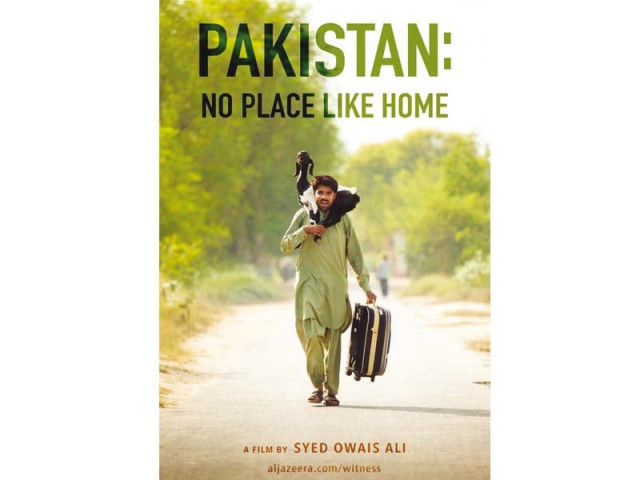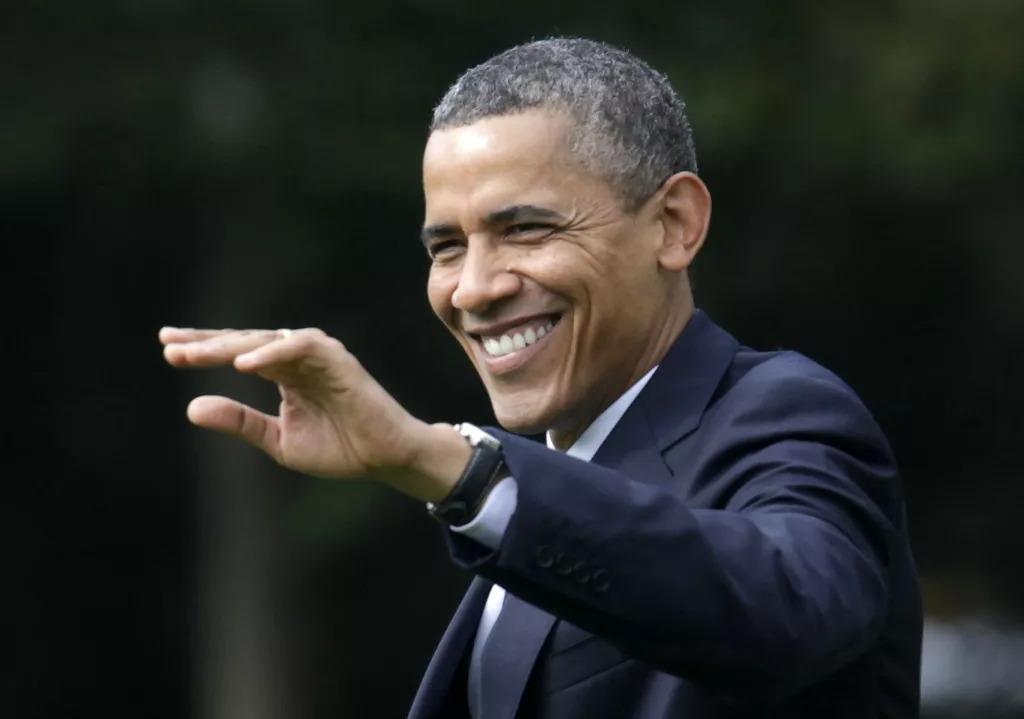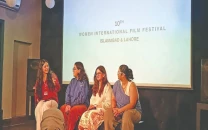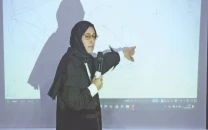How a student documentary changed lives in Hakimwala village, Punjab
How a student documentary changed lives of villagers in Hakimwala, Punjab

Ali decided to make the film to highlight the issues faced by migrant labourers. PHOTO: PUBLICITY
Sharif’s family dynamics do not help his cause much. As the only one who can drive the only vehicle in all of Hakimwala, he can often be seen driving his neighbours back and forth whenever they need.
But residents of Hakimwala must part with their hero, and so, Sharif sells off his Suzuki Mehran and the remaining lands to embark upon a journey to Dubai. It is this journey that debut director Syed Owais Ali has documented in Pakistan: No Place like Home. The film was picked up by international news channel Al Jazeera English just recently.
The documentary follows Sharif as he leaves Hakimwala and enters a foreign land for the first time in his life. Ali, a Pakistani student at Northwestern University in Qatar aims to shed light on the plight of migrant workers in the international media with the project.
Speaking with The Express Tribune, Ali revealed his university had started offering documentary grants back in 2014 and he was the first student to receive one. And so, Pakistan: No Place like Home came into being. “Before moving to Qatar, I lived in Dubai with my family and often interacted with the migrant workers there. Unsurprisingly, each one of them had a story to tell and I didn’t appreciate the way they had been presented in the international media,” recalled Ali. “I feel like they are just talked about as numbers or statistics. What I have attempted to do through my film is to humanise their story.”

Ali believes it is high time the world deliberated upon the reasons that force labourers to leave their homes and families for stranger lands. “We need to understand the motivations behind their actions. There are many factors at play here … Some of them need to pay back debts, others have to support their families.”
The up and coming film-maker, therefore, decided to record Sharif’s journey every three months to explore how he adjusts and progresses in a new environment. “I had classes to attend at the same time so I decided that I would visit him every three months. But after just four months, I was informed that Sharif had gone back to his village,” Ali shared.
Interestingly, Sharif’s friend Zubair — who had also left Hakimwala at the same time — had decided to stay back in Dubai. “I already knew it would be difficult for Sharif to adjust. Zubair may be shy but he is more strong-willed than Sharif, who is more outspoken, funny and attached to home,” said Ali. “Still, it was quite surprising that he returned within four months only.”
With Sharif’s departure, the entire narrative of Pakistan: No Place like Home had to be changed. Ali willingly obliged and followed up on Sharif’s return to Hakimwala. Having wasted so many of his own and the village’s resources, the farmer had to regain the respect of his people, which forms the latter half of the documentary.
However, with the university deadline approaching, Ali finished the project, which was earlier titled Of the Rulers. What he never suspected was that soon enough, it will be picked up by Al Jazeera English and get funded to create what is now called Pakistan: No Place Like Home. “One of my fellow students was an intern there and he showed Pakistan: No Place like Home to some producers who loved it and approached me,” he revealed.
In a fortunate turn of events, those who watched the film also reached out to support Sharif, so much so that Ali even held a subsequent fundraiser to buy Sharif a new car. “We raised more money than we even needed and bought him a Suzuki Bolan this time. He can accommodate more people in it,” Ali added. The aspiring director is currently working on another short documentary about what happened after Hakimwala received the new car and how it changed lives. “That’s the power of documentary, isn’t it?” he said, with a smile.
Published in The Express Tribune, September 16th, 2016.
Like Life & Style on Facebook, follow @ETLifeandStyle on Twitter for the latest in fashion, gossip and entertainment.


















COMMENTS
Comments are moderated and generally will be posted if they are on-topic and not abusive.
For more information, please see our Comments FAQ